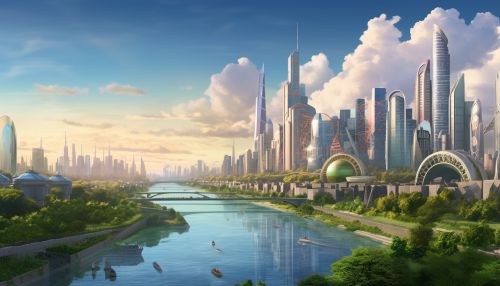City-state
Introduction
A city-state is a sovereign state that consists of a city and its dependent territories. Historically, this included renowned cities like Athens, Rome, and Carthage. Today, only a handful of city-states exist, with examples including Monaco, Singapore, and Vatican City. City-states are unique in their political structure and social organization, often reflecting a blend of historical, geographical, and cultural factors.


Historical Overview
City-states were prevalent in the ancient world, particularly in the Mediterranean region. They were characterized by their autonomy, having complete sovereignty over a city and its immediate surroundings.
Ancient City-States
The concept of city-states originated in ancient Mesopotamia, where cities like Uruk and Ur were independent entities with their own kings and armies. These city-states often had a central city, surrounded by a rural hinterland that provided agricultural support.
In ancient Greece, city-states, or polis, were the primary political units. Each polis was governed by its citizens, who would gather to make decisions on public matters. The most famous Greek city-state was Athens, known for its democratic system and cultural achievements.
In ancient Italy, Rome started as a city-state before expanding its control, eventually forming the Roman Empire. The city-state of Carthage in North Africa was a significant power in the Mediterranean before its defeat by Rome in the Punic Wars.
Medieval and Renaissance City-States
During the Middle Ages, several city-states emerged in Italy, including Florence, Venice, and Genoa. These city-states were often republics governed by merchant guilds, and they played a crucial role in the economic and cultural developments of the Renaissance.
Modern City-States
Today, only a few city-states remain, each with its unique characteristics.
Monaco
Monaco is a city-state located on the French Riviera. It is the second smallest country in the world, known for its wealth, luxury, and the Monaco Grand Prix.
Singapore
Singapore is a city-state in Southeast Asia. It has transformed from a British colonial trading post into a global financial hub. Singapore is renowned for its efficient governance, high standard of living, and multicultural society.
Vatican City
Vatican City is a city-state enclaved within Rome, Italy. It is the spiritual and administrative headquarters of the Roman Catholic Church, and it is the residence of the Pope.
Characteristics of City-States
City-states typically have the following characteristics:
- Sovereignty: City-states have complete control over their internal affairs. They have their own government, laws, and military.
- Compactness: City-states are usually small in size, with a high degree of urbanization.
- Economic self-sufficiency: City-states often have robust economies, with a high degree of trade and commerce.
- Cultural identity: City-states usually have a strong cultural identity, often distinct from their surrounding regions.
Challenges and Advantages of City-States
City-states face several challenges due to their small size and lack of resources. They are often heavily reliant on trade and can be vulnerable to external economic shocks. However, city-states also have advantages. Their small size allows for efficient governance and rapid decision-making. They can also adapt quickly to changing circumstances and implement innovative solutions.
